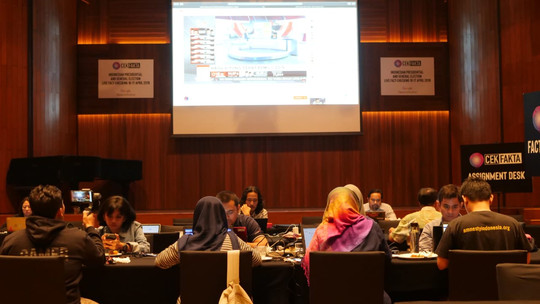What are the main challenges that could impede free, pluralistic and independent journalism of the elections in your country?
The independency of the journalists in the newsrooms are the main challenges in elections times. A number of media owners who are closely connected to politics make the public concerned that the newsrooms will not be able to maintain their independency. Aside from that, we also see a lack of capacity of journalists to publish in-depth reports or analyses. Election coverage will not educate voters if it only focuses on promises made by politicians.
What can media and journalist do to uphold ethical standards in covering elections?
Journalists should understand that they must serve the public interests, not please media owners who happen to be political party leaders. In order to fulfil this task, journalists need to abide by their code of ethics.
Did AJI publish any guidance to support their members’ independenceduring elections?
AJI sent letters to its members calling them to maintain professionalism and independency whilst covering elections. The code of conducts and code of ethics for AJI members also includes the do’s and don’ts for journalists covering the elections.
What policies and regulations should be adopted to protect freedom of the press and the public's rights for information during the election process?
Indonesia already has a Press Law which guarantees the safety of journalists. We only need to make sure everyone respects this law. The authorities also need to investigate and bring to justice any perpetrators of attacks against journalists during the elections.
Another regulation, which is also important, is the implementation of the Freedom of Information Act, so that journalists can access information and data to support their in-depth reporting.
Describe any (if any) initiative taken by your union to support press freedom and journalists' safety for the elections?
False information in Indonesia has soared months ahead of the elections. AJI was part of a collaborative work to verify false information before and during elections. Together with 22 national and regional newsrooms and several organisations, including the Legal Aid Institute for the Press, we have launched Cekfakta.com, meaning ‘to fact-check'. We hope the newsrooms can benefit from this initiative and that it will contribute to improve the quality of journalism in Indonesia.

